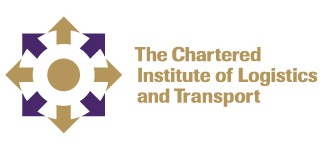CILT Endorsed Supply Chain Operations: Principles for Continuity and Sustainability
| Start Date | End Date | Venue | Fees (US $) | ||
|---|---|---|---|---|---|
| CILT Endorsed Supply Chain Operations: Principles for Continuity and Sustainability | 14 Dec 2025 | 18 Dec 2025 | Manama, Bahrain | $ 4,500 | Register |

CILT Endorsed Supply Chain Operations: Principles for Continuity and Sustainability
| Start Date | End Date | Venue | Fees (US $) | |
|---|---|---|---|---|
| CILT Endorsed Supply Chain Operations: Principles for Continuity and Sustainability | 14 Dec 2025 | 18 Dec 2025 | Manama, Bahrain | $ 4,500 |
Introduction
When supply chains are weak, the flow of goods and services is interrupted, costs go up and customer satisfaction levels drop. Furthermore, the operations may result in a negative impact on society and the environment. In this course, we describe practices to make supply chains stronger and sustainable in the face of change. We start this course by learning about what makes strong and sustainable supply chains. We then outline various product and logistics design principles to help optimize performance. We also explore continuity planning practices for managing supply chain risks and interruptions. Finally, we turn our attention to improving supply stream resilience through effective stakeholder engagement and progressive sustainability principles.
Objectives
- Identify the foundations of strong supply chains for continuity and sustainable operations
- Outline supply chain design practices for optimum performance
- Engage in continuity planning to manage supply chain interruptions
- Develop stakeholder engagement strategies to improve supply stream resilience
- Recognize ethical, sustainability, and responsibility practices as a backbone for strong supply chains
By the end of the course, participants will be able to:
Training Methodology
This course uses a variety of individual exercises, team exercises, assessments, case studies, games, videos, and discussion boards.
Who Should Attend?
This course is designed to cater to supply chain professionals across different functions, namely planning, procurement, warehousing, transportation, logistics, and inventory management.
Target Competencies
- Supply chain management
- Logistics
- Procurement
- Supply chain design
- Continuity planning
- Sustainability
- Stakeholder engagement
- Vendor relations
- Work ethics
Course Outline
Features of Strong Supply Chains
- Supply chain overview
- Supply chain objectives
- Strategic, tactical, and operational elements of supply chain
- Supply chain impact on society and the environment
- Defining “strength” and “resilience” in supply chains
- Supply and operations planning
- Fit for purpose design
- Resilience in face of change
- Aligning supply chain with corporate strategy
- Stakeholder relations
- Strong principles as a compass for decision-making
Design Principles for Resilient Supply Chains
- Supply chain people competencies
- Acquiring talent
- Developing competencies
- Retaining talent
- Process design for productivity in implementation
- Supporting technologies
- Systems
- Fundamental data analytics
- Performance measurement and improvement
- Product and service design principles for operations
Supply Continuity Planning
- Introduction to risk and continuity planning
- Risk and continuity planning process overview
- Risk management terms and concepts
- Scoping supply chain risk
- Risk charters and documentation
- Risk management templates
- Risk administration
- Risk analysis
- Measuring the impact of risk
- Measuring likelihood of risk
- Quantifying risk
- Mapping risks (risk heat maps)
- Risk response strategies
- Accept, reject and transfer
- Mitigation and contingency planning
- Managing risk charter
- Elements of risk charter
- Ownership of risk charter
- Defining risk accountabilities and responsibilities
- The charter as a live document
- Monitoring and controlling supply chain risks
Stakeholder Engagement
- Key Stakeholder identification
- Supplier segregation
- Demand-side partners
- Stakeholders and internal influencers
- Developing a communications plan
- Message scope and clarity
- Identifying stakeholders
- Mapping stakeholders
- Customized messaging
- Distribution of roles
- Managing change
- Technical elements of change (Logos)
- Political elements of change (Ethos)
- Emotional elements of change (Pathos)
Ethical Principles as a Core Strength
- Ethical code of conduct
- Corporate culture and risk appetite
- Cultural considerations
- Ethical considerations
- Legal considerations
- Sustainability in supply chains
- Financial sustainability
- Environmental sustainability
- Social sustainability
- Responsibility programs across supply tiers
Professional Recognition & Accreditations
We are an Approved Training Provider (ATP) in the region for the Chartered Institute of Logistics and Transport (CILT). Established in 1919, CILT is the world’s leading supply chain, logistics, and transport professional body with over 33,000 members across the globe. CILT seeks to add value to the individual and corporate members by enhancing their knowledge, careers, and businesses by setting, supporting, and delivering professional standards and education in the fields of logistics, transport, and supply chain. By attending our CILT accredited courses, participants can earn CPD units as well as to attain modular unit award courses that can be combined for international certification.




















